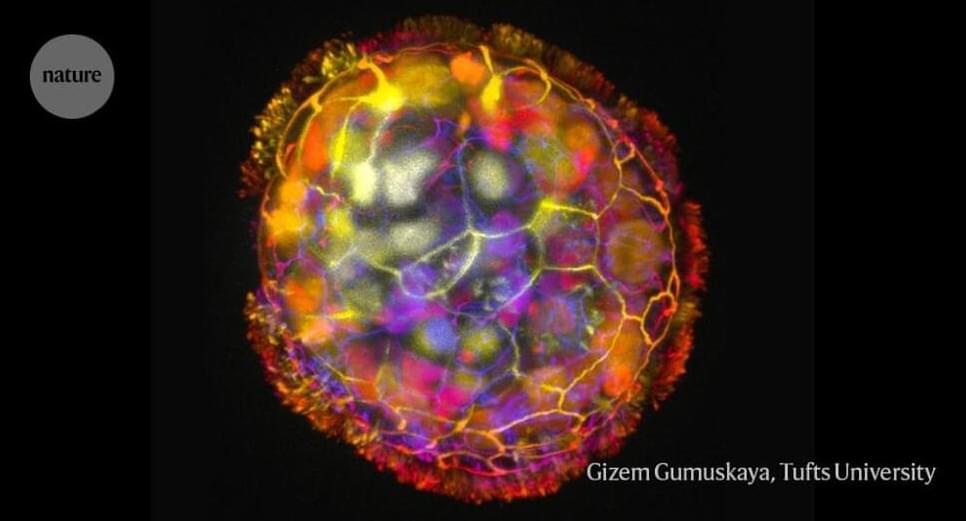Are robots made from frog cells (Xenopus laevis).
Scientists have developed tiny robots made of human cells that are able to repair damaged neural tissue1. The ‘anthrobots’ were made using human tracheal cells and might, in future, be used in personalized medicine.
Developmental biologist Michael Levin at Tufts University in Medford, Massachusetts, and his colleagues had previously developed tiny robots using clumps of embryonic frog cells. But the medical applications of these ‘xenobots’ were limited, because they weren’t derived from human cells and because they had to be manually carved into the desired shape. The researchers have now developed self-assembling anthrobots and are investigating their therapeutic potential using human tissue grown in the laboratory. They published their findings in Advanced Science.
Levin and his team grew spheroids of human tracheal skin cells in a gel for two weeks, before removing the clusters and growing them for one week in a less viscous solution. This caused tiny hairs on the cells called cilia to move to the outside of the spheroids instead of the inside. These cilia acted as oars, and the researchers found that the resulting anthrobots — each containing a few hundred cells — often swam in one of several patterns. Some swam in straight lines, others swam in circles or arcs, and some moved chaotically.










Comments are closed.